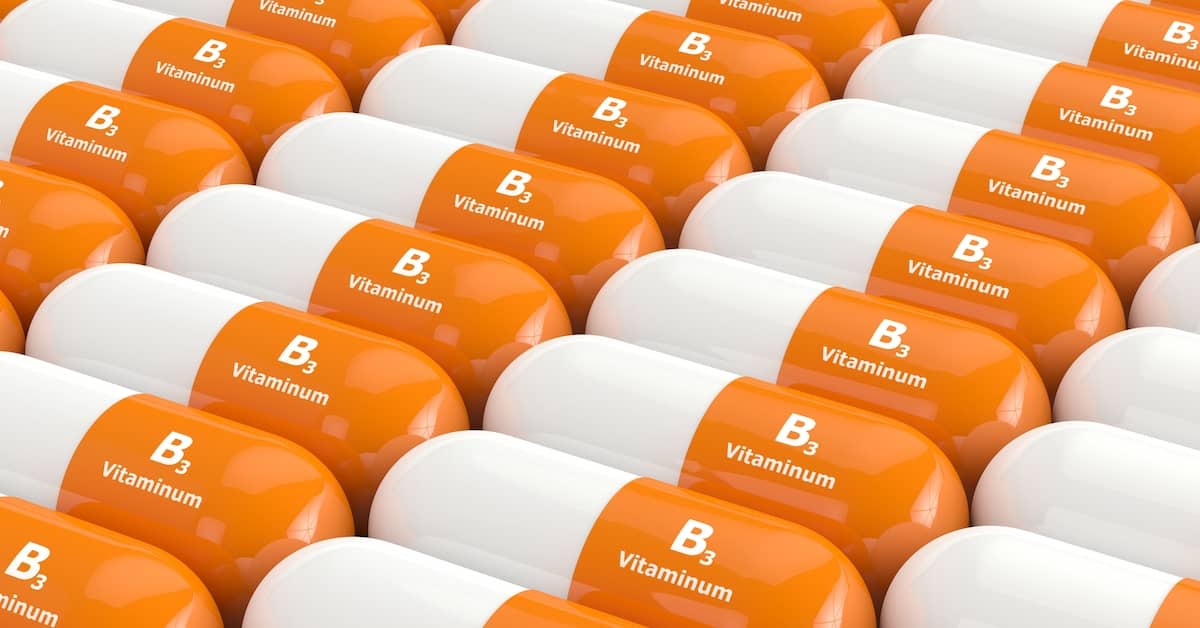
From worms to mice to rhesus monkeys, the lives of many creatures can be rendered longer by restricting their food intake.
This may be an effective anti-aging technique, but cutting down calories by a third or more is too big a price to pay for all but those who are really determined to live a long time.
For those of us who don't like to go hungry, new, exciting findings have recently been released which demonstrate that a dietary supplement can mimic at least one of the major benefits of a calorie-restricted diet.
Yes, folks, it's fasting in a pill. . .
Elevated NAD+ Delays Aging
The supplement is called nicotinamide riboside (NR), most familiar lately under the brand name Niagen. NR is a form of vitamin B3. Another type of B3, NMN, which is converted into NR, was covered in a previous edition, #45, of Aging Defeated.In the new study, scientists from the University of Colorado were interested in NR's effect on NAD+, a co-enzyme that gets depleted rapidly with aging.
Major enzymatic reactions in the body, mitochondrial (energy) production, cellular communication, and many metabolic processes depend on NAD+.
Some scientists believe a dwindling supply of NAD+ contributes to aging and disease, but the molecule gets conserved on a calorie-restricted diet. NAD+ also activates enzymes called sirtuins which are credited with many of the anti-aging benefits seen in calorie restriction.
For the trial, which was randomized, double blind and placebo controlled, the researchers enrolled 24 lean, healthy volunteers, aged 55 to 79, without any metabolic dysfunction.
Half the group took 500 mg of NR twice a day for six weeks. The other half took a placebo. The groups were then crossed over, with the placebo group switching to the supplement and the other group doing the reverse for another six weeks.
Protection from Cardiovascular Disease
Blood tests revealed the supplemented groups enjoyed a 60% increase in NAD+ levels compared to placebo. So NR does have an effect on NAD+ levels similar to what fasting achieves.Senior study author Dr. Douglas Seals said, “This was the first ever study to give this novel compound to humans over a period of time.
"We found that [NR] is well tolerated and appears to activate some of the same key biological pathways that calorie restriction does."
His colleague Dr. Christopher Martens added, "The idea is that by supplementing older adults with NR, we are not only restoring something that is lost with aging, NAD+, but we could potentially be ramping up the activity of enzymes responsible for helping protect our bodies from stress.”
Not only did NR give a major boost to NAD+, it also lowered the systolic (upper) reading in those with elevated and high blood pressure stage 1 (120-139) by an average of 10 mmHg, "a magnitude of change", the study authors write, "associated with a 25% decrease in incident CV [cardiovascular] events...in older adults."
On top of this, NR also reduced arterial stiffness, particularly in those with raised blood pressure. Hardening of the arteries is not only linked to cardiovascular disease but to many other aging ailments such as mild cognitive impairment, chronic kidney disease and frailty.
The research team wished to emphasize this is preliminary research on a small sample of people who took a higher than usual dose, so no definitive claims for its effectiveness in a much wider population can be made. The results can only be confirmed when larger, more robust, studies are complete.
I would also observe that fasting may have other healthy benefits besides raising NAD+ levels – so we don’t quite have the last word on whether NR supplements are a full-on substitute for food restriction.
I think it’s likely that fasting will still be preferable. For one thing, metabolizing food produces a huge number of free radicals, and eating less means we have a lower oxidative load. This could be a major benefit to fasting. Plus, if you eat less you’re naturally going to weigh less and have lower blood sugar.
